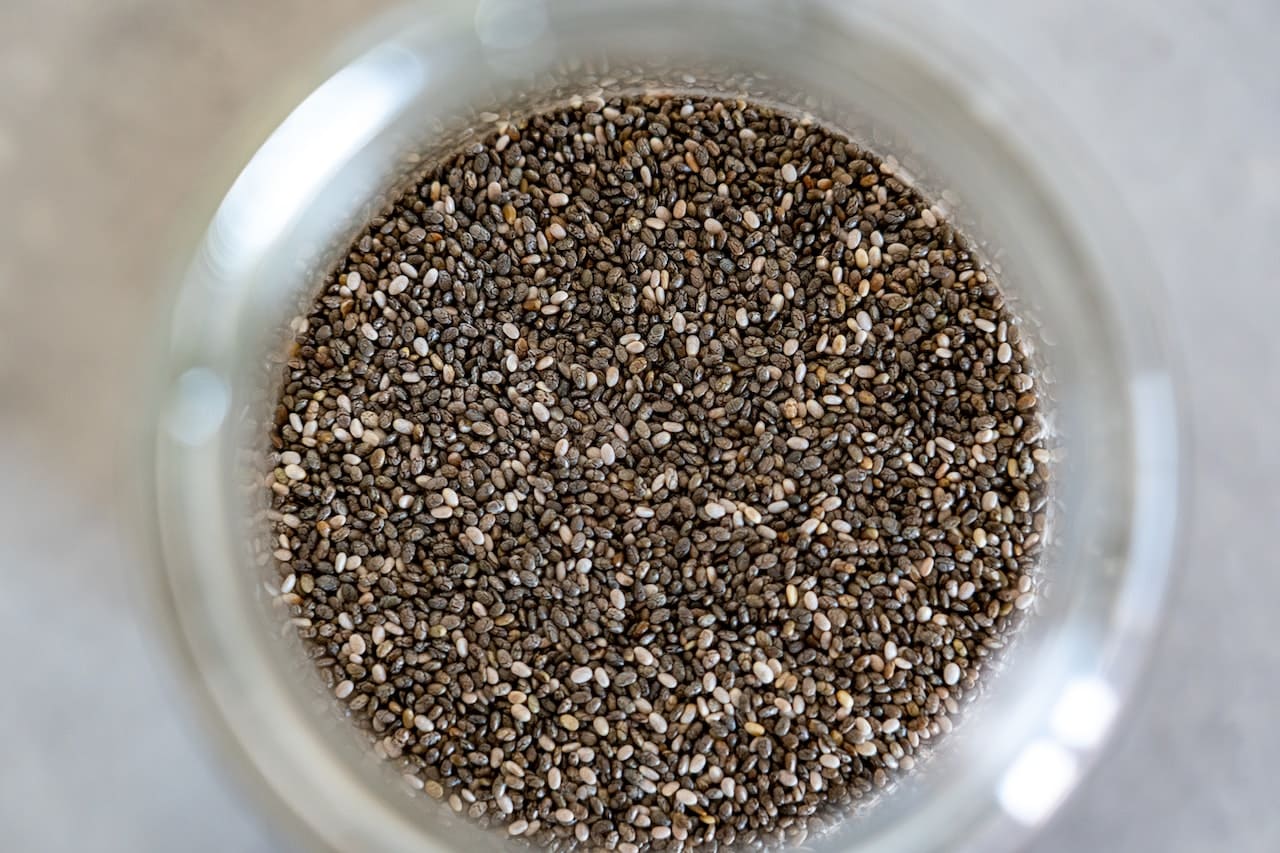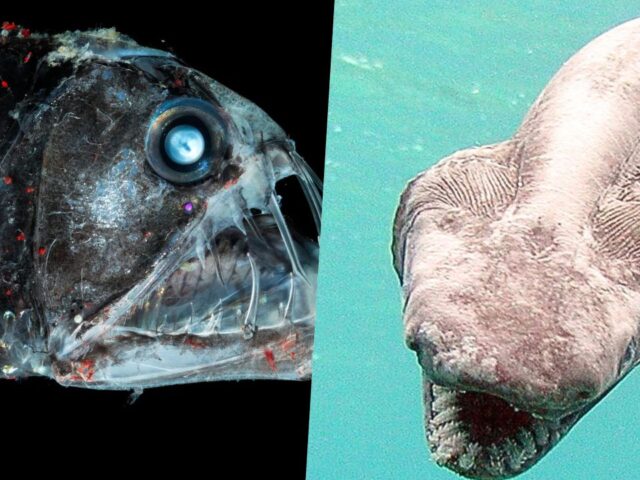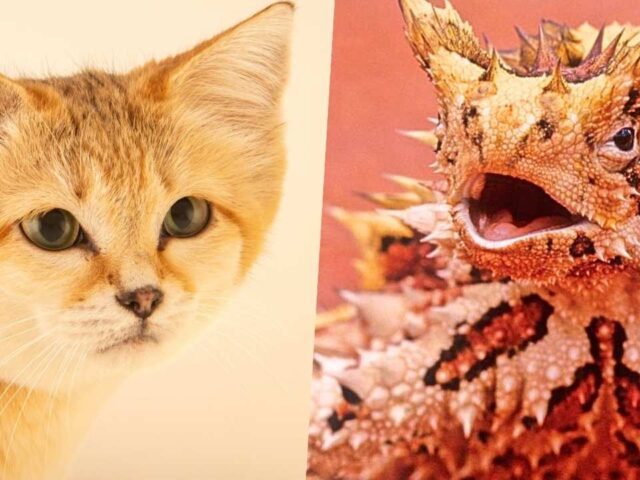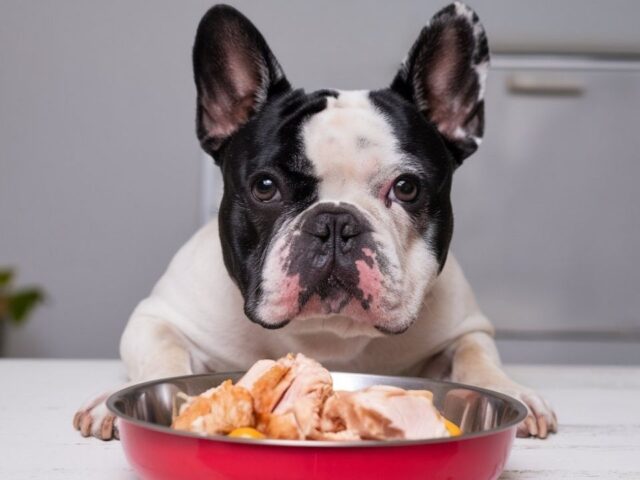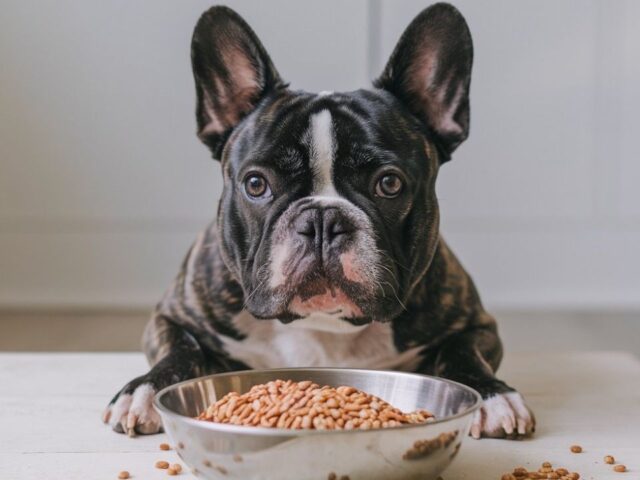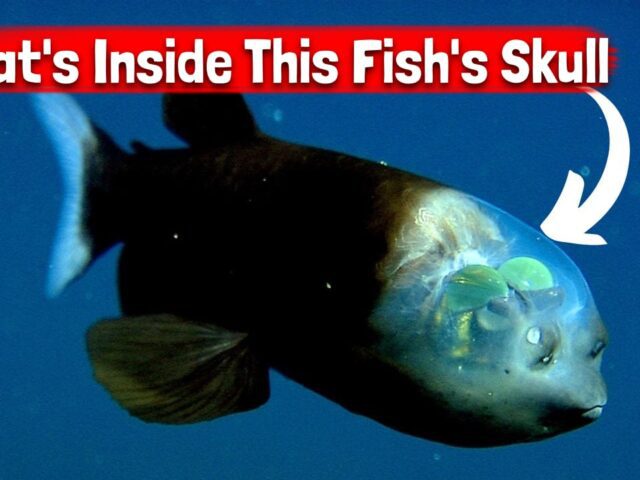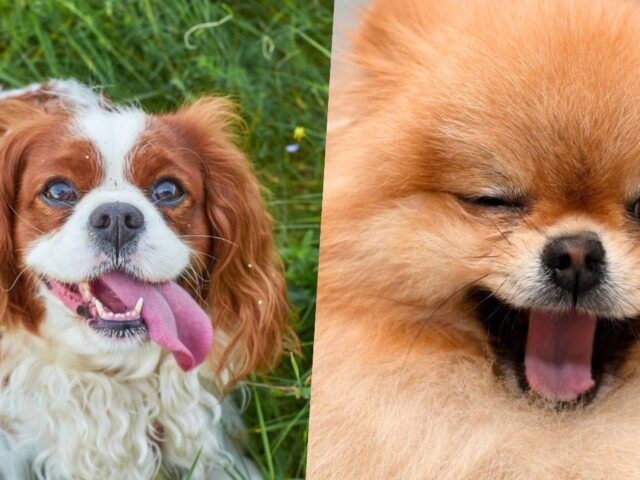Chia seeds have surged in popularity as a nutritious superfood, offering numerous health benefits for humans. But can birds eat chia seeds? In this article, we will explore the safety and nutritional value of chia seeds for various seed-eating birds.
We’ll discuss how to prepare and feed chia seeds to both wild and pet birds while outlining their potential advantages on overall bird health.
Table of Contents
- 1. Key Takeaways on “Can Birds Eat Chia Seeds”
- 2. What Are Chia Seeds And Can Birds Eat Them?
- 3. Preparing And Feeding Chia Seeds To Birds
- 3.1 Cleaning And Soaking
- 3.2 Mixing With Other Foods
- 3.3 Feeding In A Bird Feeder Or On A Feeding Station
- 4. Benefits Of Chia Seeds For Birds
- 5. Other Foods That Birds Can Eat
- 6. Conclusion: Yes, Birds Can Safely Eat Chia Seeds And Enjoy Their Health Benefits
- 7. FAQs
Key Takeaways on “Can Birds Eat Chia Seeds”
- Chia seeds are safe and nutritious for certain seed-eating birds, including blackbirds, blue jays, doves, finches, sparrows, and many more.
- To prepare chia seeds for bird consumption, they must be cleaned and soaked properly to ensure safety. Mixing them with other bird foods is also a great way to offer variety in their diet while providing essential nutrients.
- Chia seeds provide numerous benefits to birds’ overall health, including improved digestion and health; better feather quality; and increased energy levels. They can also be supplemented with flax seeds, hemp seeds as well as sunflower seeds along with fruits and vegetables.
- While feeding chia seeds to birds provides an array of valuable benefits for their health and wellbeing it is always important not to overdo it on serving quantities due to its high-fat content – moderation should always be exercised even when using small-sized treats such as these tiny superfoods.
What Are Chia Seeds And Can Birds Eat Them?
Chia seeds are a tiny, beige-colored seed that comes from the Salvia hispanica plant and are safe for birds to consume.
So the answer to the question “Can birds eat chia seeds” is a resounding “Yes”.
Nutritional Value And Potential Safety Concerns
Chia seeds are a nutrient-dense superfood, containing high amounts of protein, omega-3 fatty acids, and essential amino acids that benefit birds’ overall health. In addition to these macronutrients, chia seeds also contain essential vitamins and minerals like calcium, magnesium, potassium, and zinc.
However, it is important for bird enthusiasts to be aware of potential safety concerns when feeding chia seeds to their avian friends. The key factor in ensuring the safe consumption of chia seeds by birds is proper preparation.
Another aspect worth considering is moderation in serving quantities; while chia seeds provide valuable nutrients for seed-eating species such as blackbirds or blue jays feeding too much may cause dietary imbalances in some cases due to its high-fat content.
Birds That Can Safely Eat Chia Seeds
Chia seeds are not only healthy for humans but also for certain species of birds. Here are some birds that can safely eat chia seeds:
1. Blackbirds: Known for their love of seeds, blackbirds can benefit from the nutritional value of chia seeds.
2. Blue Jays: These omnivorous birds enjoy a varied diet that includes nuts, berries, insects, and seeds like chia.
3. Doves: Doves primarily feed on small grains and seeds, so chia seeds can be a nutritious addition to their diet.
4. Finches: With a preference for small-sized seeds, finches can easily consume chia seeds and enjoy their health benefits.
5. Sparrows: These seed-eating birds will appreciate the protein-packed chia seeds in their diet.
6. Cardinals: These beautiful birds prefer sunflower seeds, but they also enjoy eating small-sized nutritious treats like chia.
7. Chickadees: Chickadees have high metabolisms and require plenty of food to keep up with their energy levels, making chia a great addition to their diet.
8. Grosbeaks: With strong bills built for cracking tough nuts and seed shells, grosbeaks can easily handle eating chia seeds.
9. Mockingbirds: An insect-eating bird by nature, mockingbirds can also benefit from incorporating small-sized nutritious treats like chia into their diet.
10. Towhees: These ground-feeding birds have a varied diet that includes insects and small grains and seeds like chia.
11. Nuthatches: Known for hanging upside down while feeding on insects or nuts, nuthatches will appreciate the nutrient-rich benefits of consuming chia seed as well.
12. Woodpeckers: Woodpeckers have diets composed mainly of insects and nuts but will occasionally eat small-sized nutritious treats such as Chia Seeds.
Offering these bird-safe foods can enhance the diet of these birds while providing them with additional health and wellness benefits.
Preparing And Feeding Chia Seeds To Birds
To prepare and feed chia seeds to birds, start by cleaning and soaking the seeds for several hours until they form a gel-like consistency, then mix them with other bird food or sprinkle them on the ground as a treat – read on to learn more about chia seed safety and benefits for your feathered friends.
Cleaning And Soaking
To prepare chia seeds for bird consumption, it’s essential to clean and soak them properly. This process ensures that they are free of dirt, debris, and potential contaminants that could harm birds. Here are the steps to follow:
1. Rinse the chia seeds thoroughly under running water in a fine-mesh colander.
2. Place the seeds in a bowl or jar and add enough water to cover them fully.
3. Soak the chia seeds for at least 30 minutes or overnight to allow them to absorb water fully.
4. Drain any excess water from the seeds before serving to birds.
By cleaning and soaking chia seeds before feeding them to your feathered friends, you’ll ensure their safety and provide them with essential nutrients without any adverse effects on their health. Additionally, mixing soaked chia seeds with other bird foods can make a nutritious meal for your avian pets while keeping them healthy and happy!
Mixing With Other Foods
To add some healthy variety to their diets, you can mix chia seeds with other types of birdseed or feed them as a standalone treat. Here are some ideas for mixing chia seeds with other foods:
1. Mix chia seeds with sunflower seeds and peanuts to create a protein-rich treat that birds like chickadees and woodpeckers will surely enjoy.
2. Combine chia seeds with oats, millet, and dried fruits like raisins or cranberries for a nutritious blend packed with vitamins and minerals.
3. Create a homemade bird cake by combining chia seeds, suet, mealworms, and cornmeal. Chill the mixture in the refrigerator until it is firm enough to cut into squares. Then place these squares on a feeding station or in a deep dish feeder.
4. Mix chia seeds with peanut butter for an extra energy boost during cold winter months when birds require more calories to stay warm.
5. Add some chopped vegetables like carrots or broccoli to your birdseed and chia seed mixture for added nutrition.
Remember that different birds have different dietary needs, so be mindful when selecting other foods to mix with your chia seeds. Keep the mixture fresh by feeding only small amounts at one time and storing any excess in an airtight container away from moisture and light. By experimenting with different ratios of ingredients, you can create custom blends that provide maximum nutritional benefits for your feathered friends!
Feeding In A Bird Feeder Or On A Feeding Station
Chia seeds are a great addition to bird feeders or feeding stations. One way to offer them is by mixing them with other seeds and grains in a feeder. Chia seeds are small, so they may fall through some types of mesh feeders, but tube feeders work well.
When offering chia seeds at a feeding station, it’s important to keep it clean and dry. Wet food can harbor bacteria that could harm birds’ health. Also, be sure not to offer too much chia seed at once as this can attract unwanted pests such as squirrels, who will compete with the birds for food.
Benefits Of Chia Seeds For Birds
Chia seeds offer a variety of benefits for birds, including improved digestion and health, better feather quality, and increased energy levels – read on to learn more about how these tiny superfoods can help keep your feathered friends healthy and happy!
Improved Digestion And Health
Feeding chia seeds to birds can have a positive impact on their digestion and overall health. These tiny seeds are a great source of fiber, which helps improve the digestive system’s function in birds.
Furthermore, chia seeds also provide essential vitamins like vitamin A, calcium, and iron that help maintain bird health. By adding chia seeds to your bird’s diet regularly, you can ensure your feathered friends get the nutrients they need for optimal health.
Better Feather Quality
Chia seeds are known for their high levels of omega-3 fatty acids. These fatty acids play a vital role in maintaining healthy feathers in birds. Feathers require essential nutrients to remain shiny, strong, and flexible.
Chia seeds contain a range of vitamins and minerals that benefit feather quality.
Feeding birds with chia seeds is beneficial for all seed-eating birds such as finches, sparrows, blue jays, chickadees, and grosbeaks among others listed above due to its rich nutritional value.The ingestion of these tiny powerhouses delivers an array of health benefits that help keep them lively and protected from diseases.
Increased Energy
Chia seeds are an excellent source of energy for birds. They contain high amounts of omega-3 fatty acids, which provide sustained energy throughout the day.
One example of this is during migration season when birds need extra fuel to make long flights. Offering chia seeds can help prepare them for their journey and ensure they have enough energy to complete it successfully.
Additionally, seed-eating birds like finches and sparrows who need consistent sources of food throughout the day will benefit from the sustained release of energy that chia seeds provide.
Other Foods That Birds Can Eat
In addition to chia seeds, birds can also benefit from other nutrient-rich foods such as flax seeds, hemp seeds, sunflower seeds, fruits and vegetables, and grains.
Flax Seeds
Flax seeds are another excellent choice for birds when it comes to adding variety and nutrition to their diet. These tiny brown or golden seeds are packed with essential Omega-3 fatty acids, fiber, protein, and lignans that can benefit a bird’s overall health.
Similar to chia seeds, flax seeds can be mixed in with other birdseed blends or sprinkled on the ground as a treat. Some popular seed-eating birds like finches and sparrows enjoy eating flaxseed as part of their diet.
However, it is important to note that flaxseeds should only be fed in moderation due to their high-fat content.
Hemp Seeds
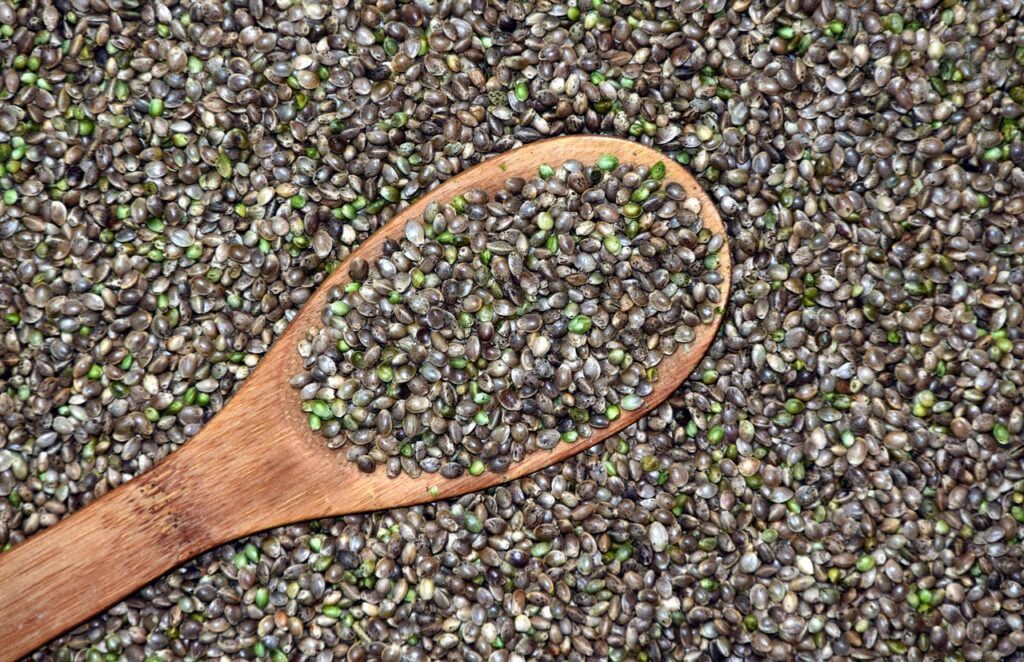
Along with chia seeds, hemp seeds are also a safe and nutritious food option for birds. Hemp seeds are rich in protein, essential fatty acids, and vitamins that can improve the overall health of seed-eating birds.
Similar to chia seeds, hemp seeds can be easily prepared by soaking them in water before feeding them to your feathered friends. Mixing the soaked hemp seeds with other birdseed or sprinkling them on the ground is an excellent way to offer variety in their diet while also providing essential nutrients.
With no toxic properties and offering many benefits for our avian friends’ health and wellbeing, including both chia and hemp seeds in a bird’s diet creates a balanced supplement as part of their daily food intake routine.
Sunflower Seeds
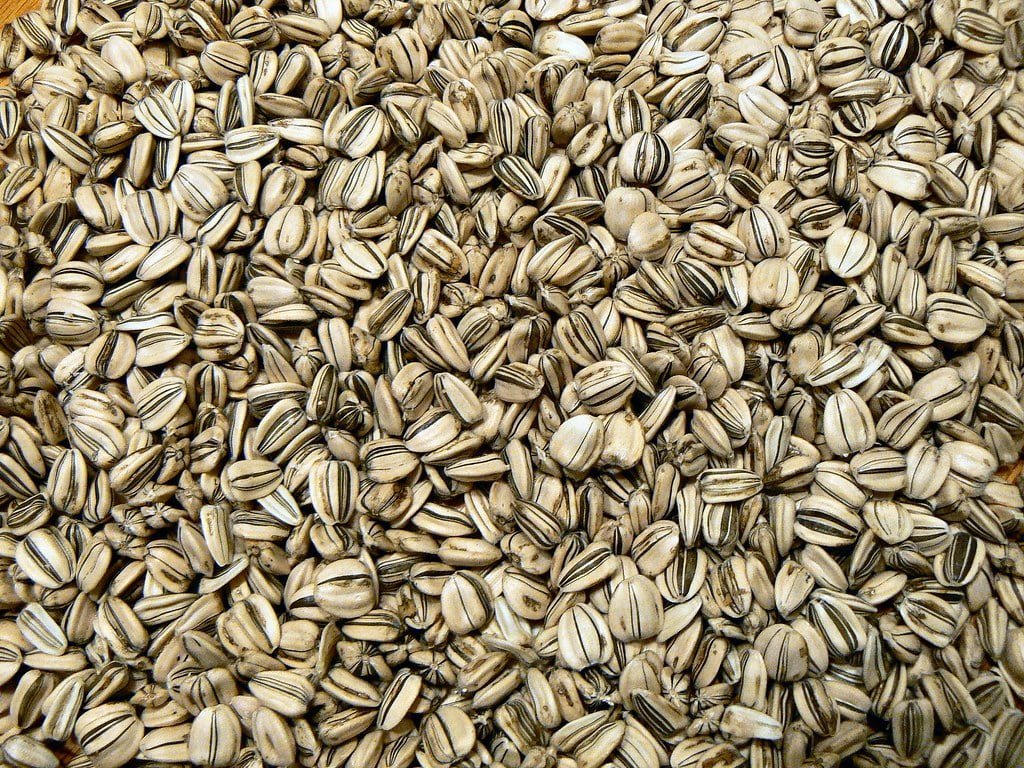
Sunflower seeds are a popular food choice for many types of birds, as they provide numerous nutritional benefits. These seeds contain high amounts of protein, healthy fats, and fiber that can help improve a bird’s digestive system while also supplying them with the energy they need to fly and forage.
In addition to being incredibly nutritious for wild birds, sunflower seeds are also relatively easy to prepare and feed. You can mix these seeds in with other birdseed or scatter them on the ground for birds to find.
Sunflower seed mixes are often available at pet stores or online retailers specializing in bird food products.
Fruits And Vegetables
Fruits and vegetables are important dietary components for birds as they provide fiber, vitamins, and minerals essential for their health. Here are some fruits and vegetables that birds can enjoy:
– Apples: Birds love the sweetness of apples and can eat them sliced or diced.
– Berries: Blueberries, blackberries, raspberries, and strawberries are all great options for birds to snack on.
– Grapes: Halved grapes can be a tasty treat for birds like pigeons, doves, and finches.
– Bananas: Slice up a ripe banana and offer it to your bird as a healthy source of potassium.
– Carrots: Chopped or grated carrots contain beta-carotene that is good for bird vision.
– Leafy Greens: Spinach, kale, lettuces, collard greens contain many nutrients that are beneficial to birds.
It is important to remember not to feed birds any fruits or vegetables that may be toxic to them such as avocados or citrus fruits. In moderation, fruits and vegetables can be an excellent addition to a bird’s diet along with other seeds like chia seeds.
Grains And Seeds
Grains and seeds are a crucial part of a bird’s diet, providing essential nutrients that help birds maintain their health and well-being. Here are some popular grains and seeds that birds can safely eat:
1. Millet: A favorite among many species of birds, this small-seeded grain is packed with protein, fiber, and healthy fats.
2. Niger seed: Also known as thistle seed, niger seed is high in oil content and rich in protein. It’s a great option for finches, siskins, and other small songbirds.
3. Sunflower seeds: One of the most popular birdseed types, sunflower seeds are high in energy and contain healthy fats that help birds build up their fat reserves for migration.
4. Safflower: This white seed is highly nutritious and attracts a wide variety of backyard birds such as cardinals and chickadees.
5. Hemp seeds: Packed with essential fatty acids, hemp seeds are an excellent source of nutrition for birds.
6. Flaxseeds: Rich in omega-3 fatty acids, flaxseeds offer numerous health benefits to wild birds.
7. Chia seeds: These tiny black or white seeds are safe for birds to eat and are rich in essential vitamins and minerals like omega-3 fatty acids which promotes healthy feathers.
By offering a variety of grains and seeds to your feathered friends you can provide them with all the essential nutrients they need to stay happy and healthy!
Conclusion: Yes, Birds Can Safely Eat Chia Seeds And Enjoy Their Health Benefits
In summary, chia seeds are a safe and nutritious addition to any bird’s diet. The high protein content and omega-3 fatty acids in chia seeds help improve bird health, including better feather quality and increased energy levels.
The birds that can safely consume these tiny seeds include blackbirds, blue jays, doves, finches, sparrows and many more. Chia seeds can be cleaned, soaked or mixed with other foods before being fed to a bird feeder or on a feeding station.
Other food options for birds include flax seeds, hemp seeds as well as sunflower seeds along with fruits and vegetables. Overall, adding chia seed to bird feeders is an excellent way of providing essential nutrients without exposing the birds to any harmful toxic substances.
FAQs
Yes, many bird species can safely eat chia seeds as they are a flavorful and nutritious addition to their diets.
Chia seeds are rich in several important nutrients which are essential for the healthy growth and development of birds, such as protein, fiber, Omega-3 fatty acids and antioxidants.
Birds can be fed dry or soaked chia seeds depending on their preferences. For best results, soak the seeds in water first before serving them directly or mixing them into your pet bird’s regular food.
In general, it is recommended not to feed large amounts of any one type of seed or food item to your pet birds because this imbalance may lead malnutrition issues over time including obesity & digestive distress; however reasonable amount of Chai Seed intake would not cause harm if balanced with other types of foods that provide variety while being conscious about the overall health needs of different bird breeds/individuals is key when planning out an appropriate meal plan daily basis.
Read More Interesting Articles:

